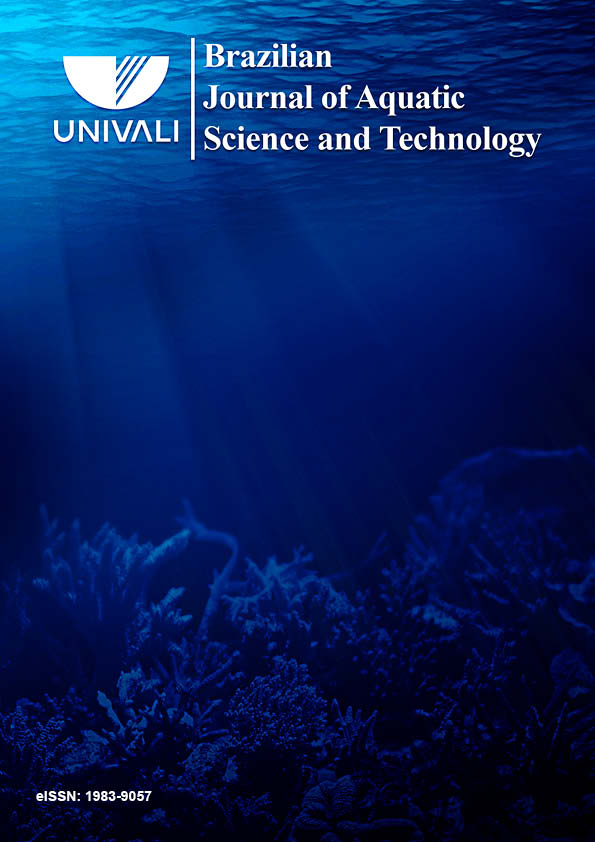

Reduction in precipitation, and consequently fresh water, can affect the food loop and the time necessary for an increase in nutrients and contaminants in coastal and estuarine ecosystems. The combined effect of human development and reduction in river flow can degrade water quality, negatively affecting the fishery and human health. The objective of the present research was the study of the water quality (temperature, salinity, alkalinity, carbon dioxide, dissolved oxygen, phosphate, silicate, nitrate, nitrite, ammonium, humic substances, suspended particulate material, particulate organic matter, chlorophyll-a, total coliforms and Escherichia coli), of two washouts (Barranco and Olho d’Água) located in the municipality of Pontal do Paraná (Pontal do Paraná, Brazil), comparing them in periods of lower and higher rainfall. The results showed that during the rainy period, there was an increase in nitrite, suspended particulate material, particulate organic matter, and a decrease in nitrate and chlorophyll-a in the two washouts. An increase in phosphate, ammonium and humic substances were only observed in Barranco; whereas an increase in dissolved oxygen and E. coli were only observed in Olho d’Água. These results showed that larger quantities of nutrients are exported to the adjacent continental shelf in high rainfall periods.






Ciências Ambientais, Ambientes Aquáticos e Costeiros.
BJAST adota a política de publicação contínua de artigos. Assim, sempre que um manuscrito for aprovado para publicação, estará imediatamente disponível para leitura.

